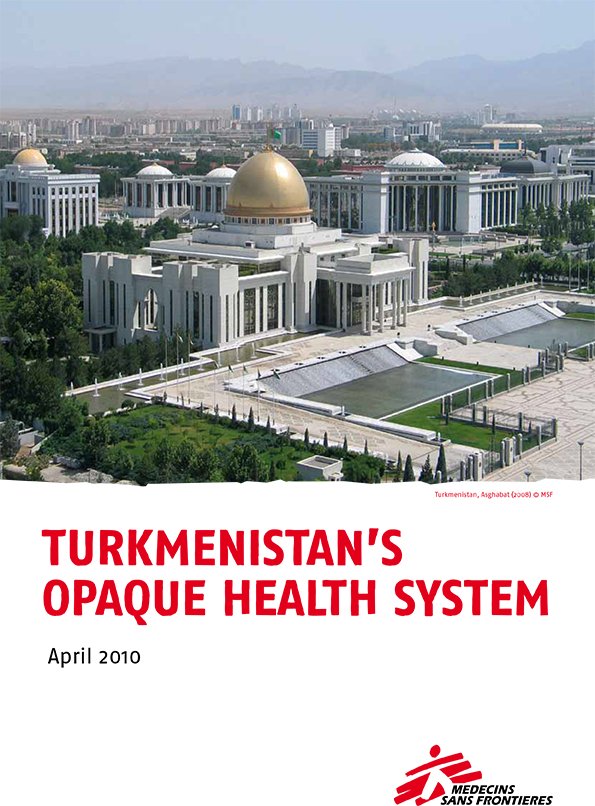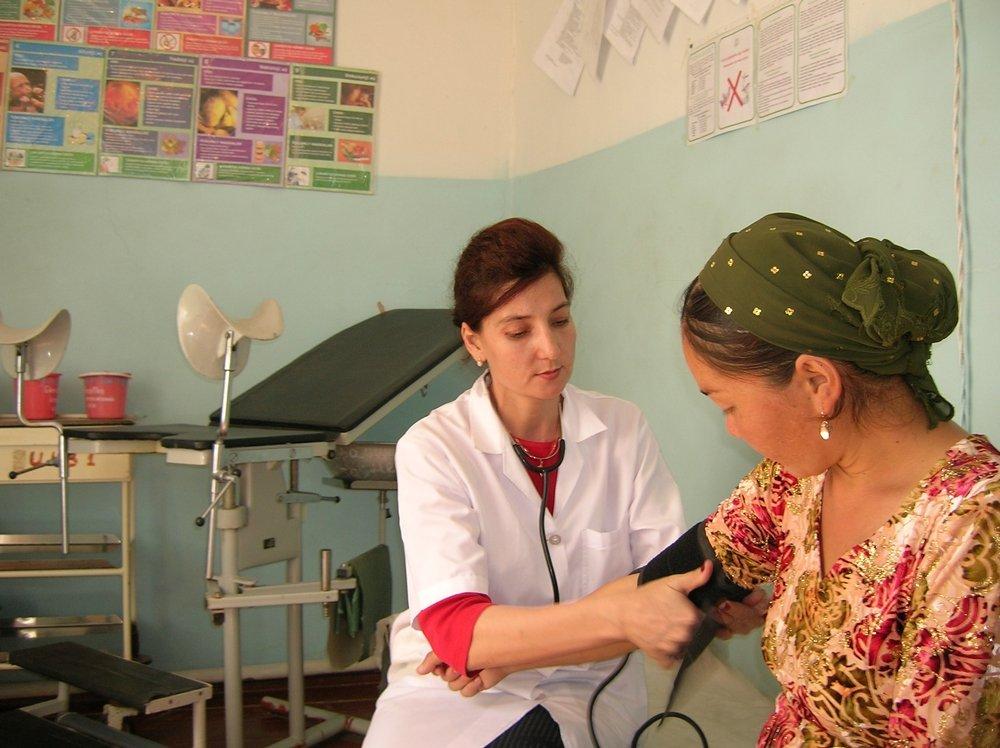
Turkmenistan's health system. Photo: MSF
Turkmenistan - Turkmenistan's outward show of health and prosperity to the international community is masking a dangerous public health situation as the existence of infectious disease is denied, medical data is systemically manipulated and international standards and protocols are rarely applied in practice according to the experience of the international medical humanitarian organisation, Doctors Without Borders (MSF) as detailed in a new report published today.
During its ten years providing medical care in the country, MSF has witnessed how people’s lives are put at risk by everyday medical negligence and widespread hazardous medical practices, with blood transfusions frequently performed without screening for HIV or Hepatitis C. Healthcare workers are operating in a culture of fear with critically ill patients being turned away so as not to negatively impact sensitive statistics on maternal or infant mortality, or communicable disease. People in Turkmenistan are being failed by a healthcare system more concerned with its image abroad than with tackling the real threat to public health posed by infectious disease.
“It is undeniable that tuberculosis and sexually transmitted infections including HIV/AIDS are more prevalent than reported figures would suggest and the Turkmen government is refusing to acknowledge this reality” said Dr Leslie Shanks, MSF’s Medical Director. “International organisations in the country, such as the World Health Organisation (WHO) and UNICEF, are perpetuating these problems by giving a veneer of legitimacy to misinformation from the government and to practices that are not only ineffective but often dangerous.”
Tuberculosis (TB), particularly in its multidrug-resistant form is perhaps the country’s most serious public health threat. Given its prevalence in neighbouring countries, MSF fears a serious TB crisis in Turkmenistan, which without an immediate and significant intervention, will lead to a major health crisis with broader regional implications. Rapid diagnosis and treatment of drug-resistant TB should be implemented immediately with the support of international experts if this is to be avoided.
MSF took the difficult decision to leave in 2009, after its activities were further restricted. The organization concluded that it was at risk of becoming complicit in masking problems in the healthcare system rather than being able to address them.
“International organisations must take up their responsibility to actively promote transparency in the health system and cease to report as fact data that are contradictory” Dr Shanks urged.
MSF has been working in Turkmenistan since 1999, when it first introduced internationally recognized standards for TB treatment in the country. For the last five years, MSF has been working in the district hospital in Magdanly, eastern Turkmenistan, to improve the quality of paediatric and reproductive health care. MSF took the difficult decision to leave Turkmenistan in 2009.
Find out more about MSF in Turkmenistan
